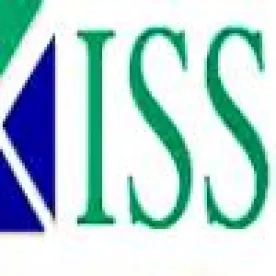Recent announcements by Institutional Shareholder Services Inc. (“ISS”), a proxy voting advisor, indicate that publicly held U.S. companies may need to consider implementing certain modifications to their equity compensation plans and grant practices. Among other things, ISS provides its institutional investor clients with recommendations on how to vote on issuer proposals (such as the adoption of (or amendment to) equity compensation plans) that are submitted to the issuer’s shareholders for their approval. So, the views of ISS typically are of relevance to most issuers. Recently, ISS issued a couple of news releases that address various corporate governance topics but we focus in this article on compensation related items that were covered in the ISS releases.
On September 29, 2014, ISS released the results of its annual global voting policy survey. In the release, ISS noted that it intended to implement a “balanced scorecard” approach to evaluating compensation plan proposals that gives weight to various factors under three categories related to the proposal. These factors would be (1) cost, (2) plan features, and (3) company grant practices. The release also provided survey findings that stated with respect to how the plan cost category should be weighed in a scorecard: 70 percent of investors indicate weights ranging from 30 to 50 percent, with a 40 percent weighting cited most often. Sixty-two percent of investors suggested weightings from 25 to 35 percent for plan features; and 64 percent indicated weights ranging from 20 to 35 percent for grant practices. Separately, with respect to executive compensation, the release also said that “pay limits relative to company performance resonate with investors” and that when “asked whether there is a threshold at which the magnitude of CEO pay warrants concern even if the company’s performance is positive (e.g., outperforming peer group), 60 percent of investor respondents answer in the affirmative”. The survey provides many other details along with quantifying and summarizing the responses to the specific survey queries.
Additionally, on October 15, 2014, ISS issued a news release in which it announced the launch of its 2015 benchmark voting policy. ISS solicited views on its draft voting policies for 2015 and requested that any comments be provided to them by email before 6:00 p.m. EDT on October 29, 2014. One such new draft voting policy is the “Equity Plan Scorecard” (“EPSC”) as mentioned above in the earlier news release. If implemented, the EPSC would be utilized by ISS in their process for making vote recommendations with respect to equity compensation plans that have been submitted for shareholder approval.
The EPSC would be a “scorecard” model that would consider various factors, rather than the current ISS current voting policy which entails a series of “pass/fail” tests to evaluate equity compensation plan proposals. Currently, the pass/fail tests look at the company’s historical “burn rate” relative to ISS prescribed burn rate limits, whether the company has problematic pay practices which can include performance/pay misalignment or egregious plan provisions, and whether cost of the plan is too high as measured by ISS’ shareholder value transfer (“SVT”) model. In lieu of the pass/fail tests, going forward, the “total EPSC score will generally determine whether a “For” or “Against” recommendation is warranted”.
The EPSC would include three main categories which are: (1) the plan’s cost, (2) the plan’s features and (3) the company’s grant practices. Below is a brief overview of these three items:
1) Plan Cost: The total potential cost of the company’s equity plans relative to industry/market cap peers, measured by the company’s estimated SVT in relation to peers.
2) Plan Features: The equity compensation plan document itself would be reviewed with a focus on provisions covering:
-
automatic single-triggered award vesting upon a change in control;
-
discretionary vesting authority;
-
liberal share recycling on various award types; and
-
minimum vesting period for grants made under the plan.
3) Grant Practices: The issuer’s equity grant practices would also be evaluated and this would include assessing:
-
the issuer’s three-year burn rate relative to its industry/market cap peers;
-
the vesting requirements in the most recent equity grants to the issuer’s chief executive officer;
-
the estimated duration of the plan based on the sum of shares remaining available and the new shares requested, divided by the average annual shares granted in the prior three years;
-
the proportion of the chief executive officer’s most recent equity grants/awards subject to performance conditions;
-
whether the issuer maintains a claw-back policy; and
-
whether the issuer has established post exercise/vesting share-holding requirements.
The EPSC further provides that scorecard factors and weightings will be keyed to company size and status: S&P 500, Russell 3000 (excludes S&P500), Non-Russell 3000, and Recent IPOs or Bankruptcy Emergent companies. And, burn rate benchmarks will be calibrated for respective index groups: (a) S&P500, (b) Russell 3000 (excluding S&P500), and (c) Non-Russell 3000; the relevant GICS industry classification will be used within each index group.
Notwithstanding the scorecard approach, ISS noted that certain “highly egregious features will continue to result in negative recommendations regardless of other factors (e.g., authority to reprice options without seeking shareholder approval)”.
What’s Next?
As noted above, ISS solicited comments on its draft voting policies and companies may want to provide input to ISS. In this regard, with respect to the EPSC, ISS specifically requested feedback on whether certain factors outlined in the EPSC should be more heavily weighted and whether there may be any unintended consequences from shifting to a scorecard approach.
In any event, companies will want to monitor the development of the EPSC (ISS said that it expects to issue its final 2015 voting policies on or around November 7, 2014 and which would be applicable for shareholder meetings occurring after January 2015) and review their own equity compensation plans and grant practices in light of the EPSC to determine what if any changes it may wish or need to implement in the future.



 />i
/>i

